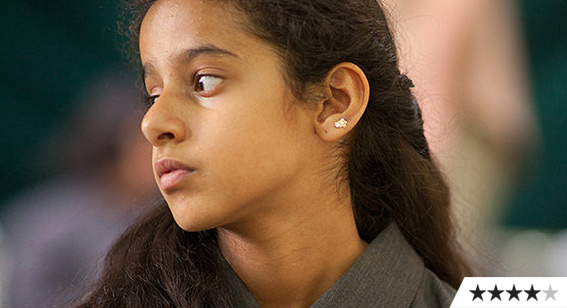Review: Wadjda

Not many feature films have been made in Saudi Arabia. Even more remarkable in a patriarchal, totalitarian society is Wadjda, the first Saudi film to be scripted and directed by a woman, Haifaa Al-Mansour. It’s a simple tale, boldly shot and simply told. Young Wadjda dreams of getting a bicycle and racing her best friend, Abdullah. No big deal for us, but for a girl in Riyadh, riding a bike and associating with boys are immoral acts.
Seen through our eyes, the sought-after bike is a metaphor for freedom, in a fable of repressed female individuality. But Wadjda’s subversive brilliance is its clever tightrope trick, walking the thin line between critical analysis of the position of women and a moral tale of the dangers of female freedom.
Wadjda, played by spirited 12-year-old Waad Mohammed, sets about raising cash, selling mixtapes and friendship bracelets, and even faking interest in a cash-prize competition to recite the Qur’an. What we read as young Wadjda’s blossoming feminism could be argued, by fundamentalists, as her descent into immorality and deceit as means to purchase the soulless object of her desire.
Set against a backstory in which Wadjda’s father is seeking a second wife, so that he might have the son Wadjda’s mother so selfishly failed to give him, this is bold storytelling, cleverly circumventing censorship to secure its place in history as a watershed moment in Saudi cinema. That it’s also engaging, sweet, humorous and moving is no mean feat.
















